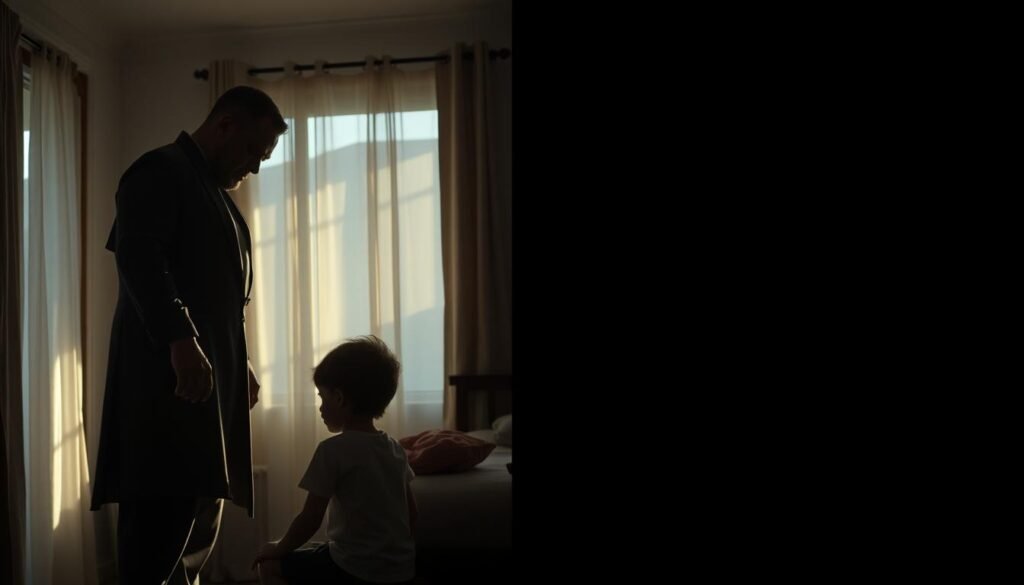Have you ever wondered why some children thrive while others struggle, even when raised in similar environments? The answer often lies in the approach parents take to guide their behavior. Understanding the difference between discipline and punishment is crucial for fostering healthy development in children.
Discipline focuses on teaching and guiding, helping children learn from their actions. Punishment, on the other hand, often aims to stop unwanted behavior through fear or consequences. Studies show that discipline builds self-esteem and improves academic performance, while punishment can lead to resentment and fear.
This article explores actionable strategies backed by research and expert insights. From handling sibling conflicts to addressing rule-breaking, you’ll discover practical methods to nurture your child’s growth. Let’s dive into the tools that can make a lasting impact on their behavior and development.
Key Takeaways
- Discipline teaches children valuable life skills, while punishment often focuses on stopping behavior.
- Research shows discipline improves self-esteem and academic achievement.
- Natural and logical consequences are more effective than harsh punishments.
- Expert insights provide practical methods for real-world parenting challenges.
- Understanding the difference helps create a positive and nurturing environment for children.
Understanding Discipline and Punishment
Parenting approaches shape a child’s behavior and emotional growth in profound ways. Two terms often used interchangeably—discipline and punishment—have distinct meanings and effects. Understanding these differences is essential for fostering a positive environment for your child.
What is Discipline?
Discipline comes from the Latin word meaning “to teach.” It focuses on guiding a child to learn from their actions. This approach uses natural or logical consequences to help them understand the impact of their behavior. For example, if a child breaks a rule, they might lose a privilege related to that rule. This method encourages accountability and builds essential life skills.
What is Punishment?
Punishment, on the other hand, stems from the idea of “correcting or causing pain.” It often involves unrelated penalties to stop unwanted behavior. For instance, a child might be forced to do their sibling’s chores for breaking a rule. While this may stop the behavior temporarily, it can lead to fear or resentment and fails to teach problem-solving.
Common Misconceptions
Many parents believe discipline is permissive or that punishment ensures respect. However, discipline is about teaching, not leniency. It addresses behavior as a form of communication, using the three R’s: Reasonable, Related, and Resulting consequences. Punishment, in contrast, often skips the teaching step and focuses on control.
For example, a natural consequence might be missing TV time because homework wasn’t completed. Punishment might involve isolating the child for arguing. The American Academy of Pediatrics (AAP) strongly discourages corporal punishment, emphasizing its negative long-term effects.
By choosing discipline over punishment, parents can help their child develop emotional intelligence and problem-solving skills. This approach creates a nurturing environment where children feel supported and understood.
Key Differences Between Discipline and Punishment
The way parents guide their children can shape their future in unexpected ways. Understanding the distinctions between discipline and punishment is crucial for fostering healthy behavior and emotional growth. While both aim to address misbehavior, their methods and outcomes differ significantly.
Approach and Intent
Discipline focuses on teaching children how to make better choices. It uses natural or logical consequences to help them understand the impact of their actions. For example, if a child forgets their homework, they might lose playtime to complete it. This approach encourages self-regulation and problem-solving.
Punishment, however, often relies on external control. It aims to stop unwanted behavior through fear or penalties. For instance, a child might be grounded for breaking a rule. While this may stop the behavior temporarily, it doesn’t teach them how to improve.
Long-term vs Short-term Effects
Discipline builds accountability and trust over time. Children learn to take responsibility for their actions and develop essential life skills. Studies show that this approach reduces power struggles and improves conflict resolution.
Punishment, on the other hand, can lead to resentment and anxiety. It may stop the behavior in the short term but fails to address the root cause. Over time, this can harm the parent-child relationship and hinder emotional development.
Impact on Child Development
Positive discipline fosters emotional intelligence and social skills. Children learn to manage their emotions and interact positively with others. This approach creates a supportive environment where they feel understood and valued.
Punishment, however, can trigger the “emotional brain,” hindering critical thinking. It may lead to aggression or lower academic performance. By focusing on teaching rather than controlling, parents can help their child thrive in the future.
Practical Examples of Discipline vs Punishment
Navigating challenging behaviors at home can feel overwhelming without the right tools. Real-life scenarios can help parents understand how to respond effectively. Below are three common situations and how to handle them using discipline or punishment.
Handling Sibling Arguments
Sibling conflicts are common, but how you respond can make a big difference. Instead of removing outdoor privileges, try teaching “I statements.” For example, “I feel upset when you take my toy without asking.” This approach helps kids express emotions and resolve conflicts peacefully.
Using punishment, like sending both kids to their rooms, may stop the fight temporarily. However, it doesn’t teach them how to communicate better next time. Discipline focuses on building skills for healthier relationships.
Addressing Rule-breaking
When a child breaks a rule, like skateboarding in a no-skate zone, tie the consequence to the action. A logical response might be taking the skateboard away for a day. This helps them understand the impact of their behavior.
Punishment, such as assigning extra chores, doesn’t connect to the rule broken. It may lead to frustration and anger instead of learning. Discipline ensures consequences are fair and related to the action.
Teaching Accountability
Accountability is a crucial life skill. If a child damages something, have them help repair or replace it. This teaches responsibility and problem-solving. For example, “Let’s brainstorm how to fix this together” encourages cooperation.
Punishment, like yelling or sending them to their room, doesn’t address the issue. It may harm trust and fail to teach valuable lessons. Discipline fosters a positive way to handle mistakes.
By choosing discipline over punishment, parents can guide their children toward better choices. These practical examples show how to respond effectively while preserving trust and teaching essential skills.
Conclusion
Effective parenting strategies can shape a child’s future in meaningful ways. While harsh methods may offer temporary compliance, teaching through natural consequences fosters lifelong skills. The American Academy of Pediatrics strongly discourages physical or verbal approaches, emphasizing their negative impact on a child’s health and development.
Adopting proactive methods like positive reinforcement and logical consequences can strengthen family bonds. Consistency is key—focus on progress, not perfection. Over time, these approaches reduce anxiety, improve academic results, and build trust between parents and children.
For additional guidance, explore resources like Children Central’s toddler guide. If you need personalized support, reach out to their team for expert advice. By choosing the right tools, you can create a nurturing environment that helps your child thrive.
FAQ
What is the main difference between discipline and punishment?
Discipline focuses on teaching children appropriate behavior through guidance and understanding, while punishment often involves imposing consequences to stop unwanted actions. The intent of discipline is to foster long-term growth, whereas punishment aims for immediate compliance.
How does discipline positively impact child development?
Discipline helps children develop essential life skills like self-control, responsibility, and problem-solving. It encourages emotional regulation and builds stronger parent-child relationships, setting a foundation for healthy behavior in the future.
Can punishment have negative effects on kids?
Yes, punishment can lead to fear, anxiety, and resentment in children. It may suppress behavior temporarily but often fails to teach long-term lessons. Over time, it can harm a child’s emotional health and damage family relationships.
What are some practical examples of discipline?
Examples include setting clear rules, using natural consequences, and teaching problem-solving skills. For instance, if a child breaks a toy, they might help fix it or save money to replace it, learning accountability in the process.
How can parents handle sibling arguments effectively?
Parents can mediate conflicts by encouraging communication and teaching conflict resolution skills. Instead of punishing, they can guide siblings to express their feelings and find fair solutions, fostering cooperation and empathy.
Why is teaching accountability important in parenting?
Teaching accountability helps children understand the consequences of their actions and take responsibility for their behavior. It builds integrity and prepares them for real-world challenges, promoting independence and self-discipline.






